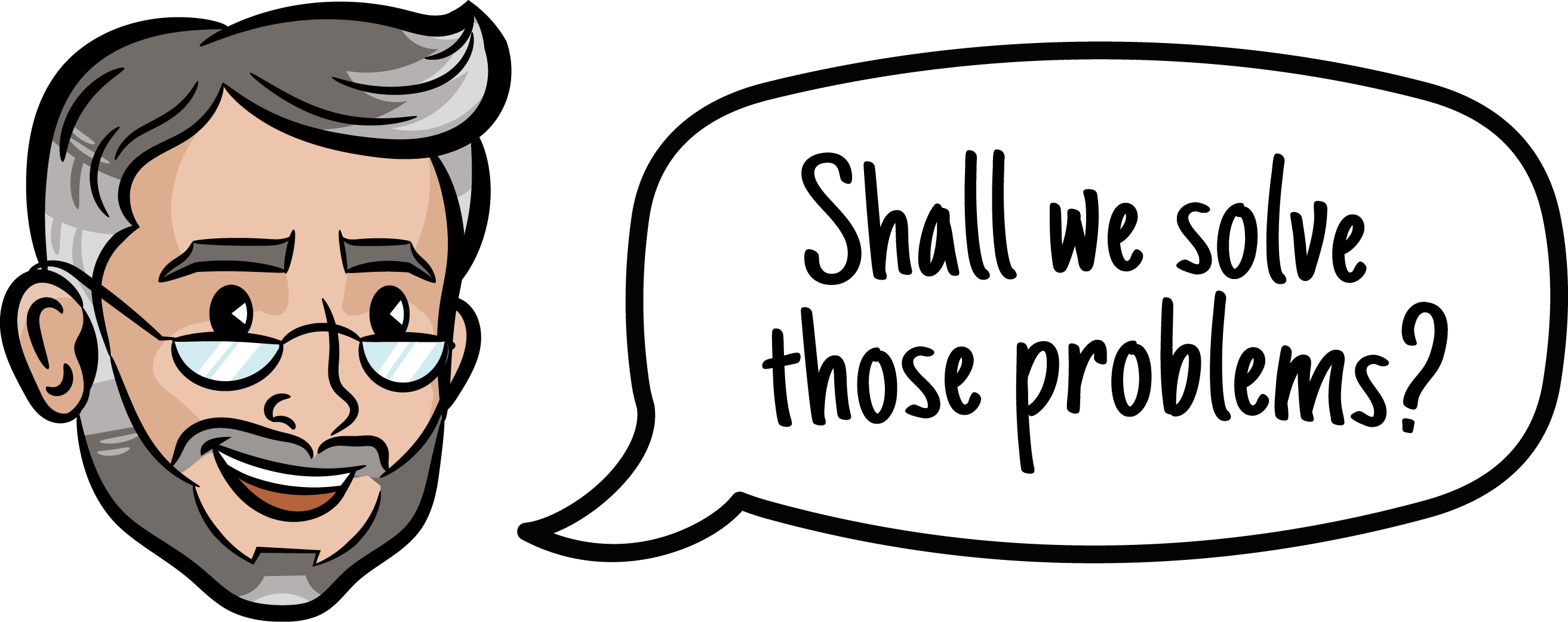
A challenge in any organization is sharing information in an actionable way between teams, and a dedicated RevOps function can greatly help!
When a business has marketing, sales and perhaps support at each others’ throats in the worst case, or stating they know they could do more to support each other, that’s a great time to think about a RevOps set of responsibilities.
At Sales Funnel Professor, we highly recommend a RevOps mindset as part of our overall philosophy of helping each team “set the table” for the others.
While your business may not be big enough for a dedicated RevOps person, your sales and marketing leadership can share that set of responsibilities to improve your funnel flow and strategy until you are.
To that end, we reached out to one of our collaborators with a wealth of RevOps experience to explain the practice and answer some common questions. Hopefully, you’ll be able to comfortably add “RevOps” to your marketing jargon vocabulary. Enjoy!
Mat O’Connor is an experienced operations professional with a background working with small businesses and Series-A to Series-C start-ups. He has direct experience in Sales/Revenue Operations, Marketing Operations/Support, Customer Success Operations/Support, Budget Management, Contract Management, and GTM Data and Analytics. He enjoys deploying and scaling core systems such as Salesforce, HubSpot, Outreach, ZoomInfo, Seamless.ai, 6Sense, Monday.com, Slack, and GSuite.
Recently, Mat has started contracting with startups to fuel growth through refined processes, data governance, and tech stack buildouts.
Mat, you and I have worked on some challenging go-to-market projects with complex offerings and multiple direct and partner-driven sales funnels where you began in a more traditional, relational sales role.
You then began your transition to more of a RevOps-oriented set of responsibilities. You’ve since gone all-in on RevOps from a career perspective, joining trade groups and being on a first-name basis with many vendors in the space, so we really appreciate you taking the time to share your perspective.
At Sales Funnel Professor, we frequently receive requests for help auditing sales funnels and organizing sales & marketing activity and teams.
Some of our clients even say things like “maybe RevOps can help” without quite knowing what it is.
That said, we’re excited to share your thoughts with our readers, so let’s get to the good stuff…
Q: We started hearing about RevOps as a specialization perhaps 4-5 years ago with more and more companies, especially in tech, starting to staff for it…how would you define RevOps when you first started hearing about it and how has it evolved since?
A: RevOps, or Revenue Operations, isn’t necessarily a groundbreaking piece of any organization. To me, it’s more of a formalization of what companies have been trying to do for decades now, creating alignment between departments to deliver a more consistent, predictable customer journey.
This is obviously a simplified version of the space and it has drastically changed for the better ever since I started paying attention. RevOps these days has grown into a vital position for companies that are trying to find that intersection between strategy, predictability, and data.
In the past, we have seen ops broken out between many departments, where RevOps aims to drive alignment to ensure there is full visibility.

Q: What appealed to you about it personally and drew you to pursue it from a continuing education and job function perspective?
Having spent the early years of my career in customer-facing roles, I’ve always been fascinated by the sales journey and how solving customer problems has such a great impact. Then, over time, I started to really pay attention to the data that was driving the methodologies and best practices I was deploying.
This led to a curiosity that operations helped me explore. Ever since I jumped into the ops world, I’ve been able to couple my understanding of the sales journey with the data that drives insights to help organizations drive a more predictable revenue engine. Also, joining the RevOps community so early has allowed me to work with some of the best in the business and take courses that have continued to sharpen my skillset.
Q: If RevOps is a new function and in some cases, a new team, how can existing teams including sales, marketing, product, operations, and senior management benefit from having a dedicated RevOps person on the team?
A: It’s funny you ask this, because I believe most teams are experiencing a little bit of confusion around what exactly RevOps is. For me, the easiest way to start to implementing a RevOps role is to audit your current customer journey to identify potential gaps. This means taking a look at the processes teams are following as well as looking for gaps in data that could lead to reporting deficiencies. Once you have identified a few areas that could use some refinement, it becomes easier to see where a RevOps practitioner can help align these teams to optimize.
Q: What’s a day in the life of a Director of RevOps like? A week in the life?
A: How much time do you have? No, seriously one of my favorite parts about working in RevOps is that no two days are the same. Working with many stakeholders means solving problems of varying degrees. It might be easier for me to bucket a few larger buckets that I tend to focus on no matter what my week looks like.
First, data. On any given week I am doing a deep dive into our data to see where we are trending and what kind of insights I can bring back to the team to help guide our strategy.
Second, enablement. As RevOps practitioners we are constantly optimizing our tech stacks and processes to ensure we are firing on all cylinders. This means that we are constantly training our teams on how to use new tools and how to work these new processes, for me this means a cadence with most teams ranging from 2x a week to biweekly.
Lastly, strategy. Business is moving faster than ever and we are always evolving to keep up with the times. To do so in a RevOps role, we must be clued into the corporate strategy from the top down, so we can be proactive in planning 3, 6 and 9 months out.
As a bonus, I’d say being active in my RevOps communities. These communities have been integral in my growth as a RevOps practitioner and have allowed me to grow in my career faster than I could have ever imagined. I’d recommend to anyone, no matter what role you are in, finding a community of peers that you can bounce ideas off of and from who you can get an outside perspective on the problems you are trying to solve at work.
Q: Tools play a big part in the RevOps discipline. What types and brands of software do you utilize and how do they connect with more traditional marketing tools such as CRMs, email systems, websites, etc.?
A: Being that RevOps, for the most part, is responsible for the data strategy for GTM teams, our tech stack is extremely important!
The CRM is typically the heartbeat of any GTM (go-to-market) tech stack, with Salesforce and HubSpot being the market leaders in this vertical.
From there the tech stack is determined by team size, company goals, and GTM strategy. A typical tech stack I’ve worked with is made up of:
- A CRM
- One or more lead intelligence tools (think LinkedIn Sales Navigator, Seamless.AI or ZoomInfo)
- An email marketing platform (Marketo or Pardot)
- A sales automation tool (Outreach or Salesloft)
- A Project Management tool (Monday.com or Jira)
- A Customer Service tool (ChurnZero or ZenDesk)
- A revenue recognition tool (SaaS Optics)

Professor’s Sidenote:
With proper Hubspot configuration, it functions as the CRM, email marketing platform, sales automation tool, & customer service tool.
Q: At what size in headcount and perhaps revenue does it make sense to start a dedicated RevOps function?
A: Typically you see a RevOps role being added to the mix when a company approaches the $10M ARR threshold. Some companies will add a fractional RevOps professional earlier, but typically these responsibilities fall on the sales and marketing leaders.
At $10M ARR a company really starts focusing on its ICP and RevOps is looked at as a driver for a more predictable GTM motion to scale to the next level.

Professor’s Sidenote:
ARR – Annual Recurring Revenue
ICP – Ideal Customer Profile
Here’s our a list of other sales jargon you may wish to memorize.
Q: What are some of the pain points that RevOps solves?
RevOps carries a lot of responsibilities and works with stakeholders across the whole GTM team, so naturally they are counted on to solve many problems. From data governance to sales process, there is a lot of opportunity for a RevOps practitioner to have an impact.
Q: What does RevOps need from senior management to be successful?
The biggest requirement that RevOps needs from senior management is buy-in for the proposed changes that RevOps identifies. At the end of the day, we can identify areas for improvement, roll out a plan for execution, and gather the resources needed, but if there is no buy-in from the top down, it’s hard to actually implement these changes.
Q: Are there any personality traits or specific skills that are pre-reqs or highly recommended for someone who might want to consider moving into RevOps?
These days you see RevOps professionals coming from all sorts of backgrounds, so it’s hard to say what the perfect career roadmap is. That being said, there are some skills that lend to someone being successful in this space, including organization, project management, data and analytics, some technical skills to deal with the tech stack, and communication.
Q: For a firm that has folks that are interested in but not skilled in RevOps yet, where would you send them?
RevOps has blown up lately and with that comes lots of resources for anyone to access to learn the skillset. For one, simply following some thought leaders on LinkedIn can lend to learning the skillsets and identifying areas to focus on for growth. There are also many courses being offered to help accelerate a RevOps career. One of my favorites is the RevOps courses being offered through Pavilion.
Q: What else should business stakeholders know about implementing RevOps?
When businesses are deciding whether or not it’s time to bring in a RevOps professional, I think there are a few things to consider.
First, do you have a team that RevOps will end up supporting? With smaller teams, it can be easier for a Sales or Marketing leader to handle the bulk of RevOps responsibilities until capacity becomes an issue.
Second, are you poised for growth or are you in a place where sustainability is more of the focus?
Lastly, is the team ready for change? RevOps professionals are typically agents of change. This comes with lots of training and expectation management with the current team. These are just a few of the things to consider, but it varies from company to company based on their situation.
A big thank you to Mat O’Connor!
For Further Reading: Twitter After 5 months of Elon Musk… What Have We Learned?



